To my perception anyway, this has been a backloaded year, with most of the releases that would have caught my attention arriving within the past few months and here in November. This was a relief at first back in the early months of spring when I realized I’d have a lot of extracurricular writing time on my hands and began an ill-fated monthly journal (now several months behind, I’ve kinda decided to can it as a partial success/failure). But now due in part to a frenzied flurry of new music coming out and already having been behind from the chaos that was my life in late August/September, I’m in a constant state of catching up. This reviews cluster addresses a slew of albums that came out in various points during the past three to four months. I wanted to write more about Cyhra, because that’s an interesting project just for the personalities involved, so its a little longer, but generally I forced myself to keep these as short as is possible for me. Straight and to the point takes on the new music itself, not a lot of room for contextualizing (which you know I can’t help doing when unrestrained).
 Cyhra – Letters to Myself:
Cyhra – Letters to Myself:
I know people might scoff at me describing this as possibly the most intriguing release of 2017, but seriously think about it: We were given an announcement sometime ago, that ex-In Flames guitarist Jesper Stromblad and ex-Amaranthe clean vocalist Joacim Lundberg were teaming up (alongside ex-In Flames bassist Peter Ivers, and power metal veteran drummer Alex Landenburg). What on earth would that sound like? Stromblad’s last recorded output was with neo-thrash/death outfit Dimension Zero, with whom he released some decent metal, though nothing to write home about. Certainly nothing that resembled the imaginative, ultra melodic richness of his career defining work in In Flames. Lundberg’s last recorded work was with the increasingly poppier pop/electro/metal hybrid Amaranthe, whom he left shortly after finishing work on last year’s Maximalism, citing that in the process of the band’s ever changing sound, his role was (ironically?) being minimized. In describing why he left, he dropped a hint about what sound he envisioned that his previous band strayed away from, ” I wanted the band to sound like… a mix between those Soilwork-like guitars and melodic Bon Jovi-type vocals combined with a female voice”. Now if you cut out the last bit about the female voice, there’s a fairly blunt description of what Cyhra could possibly end up sounding like.
Turns out that was exactly what Cyhra sounds like, and though my MSRcast cohost Cary vehemently disagrees, I actually think it works better than expected. I enjoy this album on the same wavelength that allowed me to get into Amaranthe, the songs largely being built around the vocal melodies where it turns out Lundberg has genuine songwriting talent (it was always hard to decipher individual songwriting contributions within Amaranthe, to separate Olof Morck and Lundgren in that respect). But what puts it over the top is that I’m getting to hear Stromblad’s signature melodic guitarwork again, that very distinctive style that he pioneered in In Flames that became a hallmark of the band’s sound and something I’d forever associate with Gothenburg melodic death metal. Given that its been sometime since he’s done music in this vein, its closer in approach to his last few records with In Flames than say those earlier classics of The Jester Race / Whoracle eras, but still, its refreshing to hear him playing in this vein again. If we’re all being honest, those are the types of records we’d love to see him return to making, where his guitar melodies dictated the direction of the songwriting and everything (vocals included) were arranged around them. But Lundgren is who he is, and there likely won’t be death metal growls coming from him, well, ever —- but that’s okay, because even though I’m in the minority here, I’ve always liked his voice.
The opener “Karma” was a solid choice for a preview track, giving a fairly representative overview of the band’s sound: Simple songwriting structures dressed up with Stromblad’s complex guitar attack, a chunky rhythm attack underneath and an ample dose of keyboard generated electronic effects for ambiance. Whats surprising is just how well his style meshes with a “Bon Jovi” type vocalist like Lundberg, because you’d figure that the sheer melodic expression projected from his guitarwork would crowd out the vocals rather than complement or support them. Its a weird thing to think about at first, because you’re probably thinking about all the very excellent guitarists in rock and metal history who’ve been aligned with a melodic singer without a problem —- and you’re right. What I’m emphasizing is that the melo-death/Stromblad-ian guitar approach is usually something you’d instinctively pair up against a harsh vocal, the better to contrast with (as we’ve seen on a load of excellent records past and present). So take “Heartrage”, my favorite cut on the album, where Lundberg’s emotion rippled vocal melody carries the heavy lifting of the song. Here Stromblad works around the edges, conjuring up beautiful patterns that punctuate and bookend verse fragements, while in the chorus he restrains himself enough to allow Lundberg to soar, only crashing in for the outro to send things accelerating again. Its a satisfying song, with a chorus as excellent as Lundberg ever penned in Amaranthe —- and with the foreknowledge that a lot of these songs are directly about or influenced by Stromblad’s battles with his personal demons, perhaps possessing more emotional gravity as a result.
This is largely a bouncing, kinetic listening experience, one that doesn’t slow down in tempo until the second half with a few slower, quasi-ballad songs that aren’t bad, but clearly aren’t what this band is best suited for. That they run together for three songs in a row is a sequencing problem, but one that is made somewhat tolerable by the fact that they each boast a fairly successful chorus. But the last track, “Dead to Me”, features some cringe worthy narration (this stuff usually never works) that overshadows what is a very well written hook that comes slowly at first, working its way to a heavier crescendo towards the end. They could’ve cut one of those songs and left it for future development on the next release, but its not enough to sink the album, because the first nine songs are the heart of this record. Normally I’d argue that a band should diversify the tracklisting a bit, slip in a slower song to break up the monotony, but there’s enough diversity in tempo and aggression in Cyhra’s uptempo songs to do that naturally. And I wonder now, thinking on Cary’s intensely negative reaction to this album (“its too poppy!”) if one’s individual tolerance level for pop is a determining factor in whether or not you’ll like it. Lundberg’s Bon Jovi-ian vocals are a major component of the band’s sound, and all the Stromblad melo-death guitars can’t mask that aspect. I’m considering myself lucky then to enjoy both, because this is a solid debut, something I honestly didn’t know that I’d be saying. Oh, and glad to you have back Jesper.
 Enslaved – E:
Enslaved – E:
The only thing I’ve learned for sure about Enslaved and the act of writing about their music is that everyone’s opinions about said music are wildly different. There seems to be no actual consensus about anything regarding their discography for example, a long list of fourteen studio albums and a handful of EPs and splits that have as many musical twists and turns as most bands have lineup changes. One of my favorite metal reviewers for example, Angry Metal Guy, had a lower opinion of the band’s 2010 Axioma Ethica Odini than myself and several of my metal loving friends did, one of whom loves that album so much it might make his top five desert island albums list. We also share the opinion than 2009’s Vertebrae was the weakest moment in their discography, an opinion that is generally not held among a host of prominent metal publications and blogs. It just gets more suffuse beyond that —- no one really has a consensus on what’s the band’s classic, definitive album (I would say 2004’s Isa along with the aforementioned Axioma), and seemingly everyone has a vastly different view on 2012’s heavily rock-infused RIITIIR (I rather enjoyed it myself). There’s a review on the band’s Metal Archive’s page for Below the Lights where a reviewer describes that album as Enslaved’s Dark Side of the Moon —- and don’t get me wrong, I like ‘Lights as well, but as you can see, there’s a spectrum of opinions here, reflected in that very same websites reviewer percentage ranking of the band’s discography: There’s no clear-cut high ranking album that towers above all the rest, most of them are high 80s and low 90s, which speaks volumes about the band’s consistency, if little about anything resembling certainty.
Why am I telling you all this? Well, for the self-defeating purpose of telling you that my review of E doesn’t really matter, not in the way that it usually might for those of you who have in the past discovered a new band through something I’ve written here on the blog. We’re talking about a band who’s new album is arriving with a major lineup change in its ranks (the departure of longtime keyboardist/clean vocalist Herbrand Larsen who is being replaced in those same roles by Hakon Vinje), though you wouldn’t know it unless you looked because the new guy sounds so much like his predecessor. The overall sonic palette and lengthy, progressive songwriting approach that characterizes so much of the band’s sound over the past couple albums is present as well. And while there’s nothing here that’s as rock-inflected as some of the cuts on RIITIIR or the chorus of “One Thousand Years of Rain” off 2015’s In Times, you generally feel like E is a close sibling to those albums. As expected, we’re treated to one absolute snore-fest of a tune in “Hiindsiight”, complete with repetitive clean vocal segments that last minutes too long, overwhelming keyboard drenched ambient sound effects and that godawful dreaded saxophone (can we have a year without that instrument on any metal record, just for the sake of good taste?). Then there’s bits I really enjoy: The fierce, slamming riffs that fuel “Sacred Horse” are very Axioma (again, all of us lean hard on our favorite aspects of this band); and “The River’s Mouth” is a pretty concise and hooky song all things Enslaved considered. Its kinda shocking that the best thing on the album however very well might be their cover of Röyksopp’s Icelandic trip-hop hit “What Else Is There?”, which they transform into a moody, Depeche Mode-ian clean vocal jam that is really excellent.
Largely though, I find myself losing attention through various moments on E, and while that has happened on the past two releases as well, it is occurring on this album at an alarming rate. That aforementioned friend who loved Axioma so much he’d plaster it to a volleyball he painted and called Wilson? His opinion of the new album and the band’s recent direction has turned dour: “They’re just getting boring”. And I think he’s right —- because sometimes its just that freaking simple. I used to think it was my fault or failing when I had trouble processing a complex, lengthy, multi-facted work of progressive metal such as this. But wait a second, I love other albums that fit that description: Opeth’s Blackwater Park and Still Life for starters, Porcupine Tree’s Fear of a Blank Planet, Therion’s Les Fleurs Du Mal, Alcest’s Kodama… the list go could on and on, you get the idea. I’m going on month two of constantly going back and giving this album another shot, another sit down listening experience when its late at night and I’m in the mood for some serious headphone music time. Its not catching on this time around and not exciting the pulse points that I know this band is capable of hitting with sledgehammer. I’m undoubtedly sure that E will end up on a few best of lists at the end of the year, but I can’t honestly say its one of the best albums of 2017 (it might be quite the opposite).
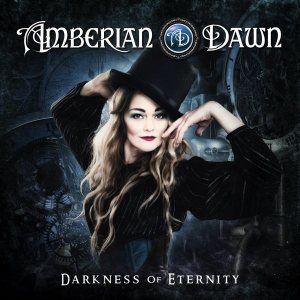 Amberian Dawn – Darkness of Eternity:
Amberian Dawn – Darkness of Eternity:
I’ve written gushingly about Amberian Dawn and their surprise 2015 year end list making release Innuendo, which was and remains a breath of fresh air within the ranks of metal bands with female vocalists at the helm. That album, like Triosphere’s The Heart of the Matter a year before, was an exciting, inventive non-operatic/classical affair that melded power metal with other outside influences from the world of pop and rock. In Amberian Dawn’s case, if you don’t remember, that predominant influence is the mighty ABBA, those masters of pop in its purest, most elegant, crystalline form. I was new to the band at that point, and Innuendo was my point of entry into their discography and apparently it was also the biggest injection of that ABBA sound in their work to date. Having gone back through their older albums with previous vocalist Heidi Parviainen, I discovered a more conventional symphonic power metal approach with dashes of ABBA spice thrown in here and there, a mix that resulted in some good stuff, if not great albums. Call me biased, but I’m all for keyboardist/songwriter Tuomas Seppala and vocalist (and ABBA cover band dabbler) Capri Virkkunen happily indulging their love for the finest of all Swedish pop. So its a pleasure to discover that they’ve not only continued in that direction on Darkness of Eternity, but might have increased the dosage so to speak.
I think Virkkunen’s vocal quality and approach is the secret to making this actually work, because she has that slight Scandinavian accent that bends the pronunciation of certain words all while singing with a clarity in her enunciation that reminds me exactly of Frida and Agnetha. That’s not to say nothing about Seppala’s knack for penning a catchy tune, because he has the gift, and is a studious disciple of the Benny/Bjorn school of songwriting (and the key to that in my opinion was understanding the techniques, range, and capability of the vocalists they were writing for). If you doubt me, consider these words in the press release from the man himself, speaking about the song “Maybe”:
“I was happy to produce this song as a tribute to ABBA‘s Benny Andersson. Most of the keyboards on this song was recorded at his studio in Stockholm and with his legendary keyboard ‘Great White Elephant,’ a Yamaha GX-1 which is often heard on ABBA songs in late ’70’s and early ’80s.”
That song is perhaps the most emblematic slice of archetypal ABBA-ian pop on Darkness of Eternity, a 70’s disco-groove inspired rhythmic shuffle built with moody keyboards, fat bass and tight metallic riffing. Virkkunen skates over the top with a rich minor/major key vocal that’s sung at a slightly slower tempo, creating that magical effect where melancholy rises to the top in that juxtaposition of happy and sad. Its the same effect that ABBA used for tunes such as “Knowing Me Knowing You”, or “When All Is Said And Done”, and its one that sounds simple on the surface but I’ve come to suspect is a talent reserved for only the best songwriters in any respective style. There’s another dance-tempo built gem on here, the 70s keyboard heavy “Sky Is Falling”, with bittersweet vocal melodies leading the way. And the lyric snob in me is impressed, because while its not earth shaking stuff, these lyrics are written without the typical misconstrued phrasing that tends to accompany most stuff from Scandinavia. The phrasing is both utilitarian and clever, as in the set up for the refrain, “Drip drop the tears are falling… Drip drop the sky is falling”, which has a built in major to minor transition in its phonetics alone. I love, absolutely LOVE well done pop in this mode, and sure, its a little light on the metallurgy, but that’s not why I’m listening to this band.
If you’re wondering then, why YOU should be listening to this band, well, like I mentioned earlier —- this is refreshingly different female fronted metal. I know that folks on my Twitter feed tend to scoff at that tag, but its just a catch all word choice to describe a grouping of bands that tends to sound one way or another. If gothic-metal isn’t your thing or you feel that no one does it better than Nightwish and just aren’t interested in hearing a copycat, this is the perfect band for you to explore. When they do lean a little harder here, as on “Dragonflies”, they morph into something resembling a heavier, meant for Broadway stages type of song, with the power metal elements working to support a soaring vocal run. On “Abyss”, you get a rather awesome melding of both a wild power metal explosion with some tightly crafted sublime pop songwriting, the heavy riff passages surrounding a gorgeously ascending refrain laden with semi-maudlin emotion. The vibrato that Virkkunen flashes in that chorus is pure ear candy for anyone who appreciates wonderful singing, she’s one of metal’s truly underappreciated talents right now. I’d also point out just how satisfyingly deft and tightly written is the pomp-epic storm of “Luna My Darling”, something that borrows as much from Wishmaster-era Nightwish as it does Sonata Arctica. But if you’re like me, you’ll be pulled in with cuts like “Breathe Again” and “Ghostwoman”, songs marinated in that sweet honey ABBA glaze. This album is my late year happy place, just an absolute blast to listen to.
 Aetherian – The Untamed Wilderness:
Aetherian – The Untamed Wilderness:
Just when I was thinking that this year was offering little in the way of great music from new bands, this late November release drops in my lap thanks to a track being previewed on Spotify’s New Metal Tracks playlist (that’s new, not nu). First of all, I can’t oversell just how useful a tool that playlist has been for myself and my MSRcast cohort Cary G. Its constantly updated with the latest singles well ahead of the album releases, it spotlights that weeks new releases, and is a well rounded mix of every sub genre because really it doesn’t care if you’re power metal, death metal or grind —- if you’re new, you’re in. I highly suggest everyone check it out as one of those solid free resources to keep tabs on if you’re not subscribing to magazines or are frustrated by certain bloggers who don’t write/update fast enough for your liking (*cough*). Aetherian’s track on the playlist was “Black Sails”, which perked my ears up due to its beautifully arranged acoustic/electric, almost Falkenbach-ian intro that led into a mix of Insomnium styled melo-death over some ultra-bleak and doomy vocals. Its a rich, varied and colorful track, full of elegant melodies but also some uptempo, speedy Gothenburg rhythmic patterns that prevent things from ever getting boring. It was a breath of fresh air in that moment, coming right after Machine Head’s newest slice of utterly abominable meathead metal (the last thing I thought was okay by them was The Blackening, and even that’s a bit overrated in retrospect, we were all a little too eager for thrash metal to return in 2007…).
These guys are from Greece, and The Untamed Wilderness is their first album, although they’ve been releasing media attention getting singles (and an EP) since 2013. I like the strategy, and hope more newer bands are going that route —- start small, keep the focus narrow by aiming for a single first, another and another and then finally try for the EP. I haven’t gone back and listened to any of their pre-album releases, but what their full length debut illustrates is a band that really thought hard about what they wanted to sound like and what they wanted to say. This album sounds simultaneously classic and new, both firmly rooted in tried and true metal traditions (the delicate intros/outros that remind me of classic Metallica, spotlight grabbing guitar solos, an emphasis on memorable melodies), all while being unafraid of trying to cross-pollinate styles at will. Case in point is “The Rain”, where we get some epic guitar melodies that one would normally associate with traditional metal, followed by the band launching into a borderline metalcore/largely melodeath breakdown. I know you’re groaning at seeing that term thrown in here, but give the track a listen and you’ll see its not what your brain is conjuring up this very second. Vocalist Panos Leakos has a deeper register than most melo-death screamers, coming across like a blend of Swallow the Sun’s Mikko Kotamäki and Omnium Gatherum’s Jukka Pelkonen. There’s enough grit there to make it not overpower the melo-death underneath with overwhelmingly doomy vocals, but enough doom in his vocals to give everything a bleak as hell coating. Give this album a shot, we’re going to be talking about it on the next MSRcast for sure.
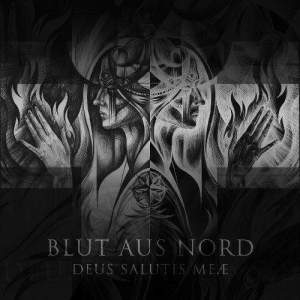 Blut Aus Nord – Deus Salutis Meæ:
Blut Aus Nord – Deus Salutis Meæ:
I’m really going to be in the minority here, but I’m just not able to crack the new Blut Aus Nord, which is a complete roundabout dive back into their industrial work of a few years ago that also blew right past me. It wasn’t for lack of trying, I really did give all those highly praised 777 era albums a shot, willing myself to like them and see what all the hype was about, but it just never happened. I’m one of those curmudgeonly types that only enjoys it when the band delivers something in that second wave of black metal milieu, as they did for 2014’s brilliant Memoria Vetusta III: Saturnian Poetry. The problem on Deus is that it sounds like one seriously monotone wash of noise, dark hellish noise for sure but unlike even the heaviest black metal, there’s nary a riff to grab onto. This is the perfect soundtrack to some kind of industrial, HR Giger influenced hellscape horror house. That’s not exactly the kind of listening experience that I’m after as a metal fan and the immense density of the production here —- slabs and slabs of noise colliding with each other, an almost drone-like repetitiveness to the rhythmic structures at work, not to mention just how annoying the drum machine programming comes across, assaulting ones ears with tinny blasts. The most listenable sequence here is “Chorea Macchabeorum”, which at least has a riff boasting a microhook in its curving rhythm, resembling a NIN track more than anything metal. I don’t know what else to say, and was almost going to skip writing about this album except I thought it’d be strange to have so highly spoken about their last release while being mum on the new one. I’m not saying its bad, but its clearly not for me —- I only hope there’s a Memoria Vetusta IV at some point.
 Elvenking – Secrets of the Magic Grimoire:
Elvenking – Secrets of the Magic Grimoire:
So I was introduced to Elvenking way back in the early aughts by a Blind Guardian loving friend of mine on a record store trip where he took a chance on their sophomore effort Wyrd just based on the cover art reminding him of Finntroll (ah the days of blind music purchasing!). It was not what he expected of course, but being able to appreciate power metal, he dug it and so did I. Over the years I’ve kept a moderate interest in Elvenking, waiting for them to finally deliver that career defining album that gelled all the best elements of their sound. They fascinate me in that they’re an Italian band that somehow manages to sound like they’re from Italy yet maybe from Germany and the States as well. Their blend of triumphant power metal with occasional folk music injections sometimes hits all the right sweet spots, but other times comes across as cluttered, unfocused, and uninteresting. I’ve always personally felt their folk moments sounded forced, and they sounded better when leaning harder on the traditional power metal approach. Part of the reason for that is just how much I like Damna (Davide Moras) as a vocalist, his vocals an oddity in the power metal world for their rough hewn Bon Jovi like quality. Hell, there have been times where he sounds more apt to be the vocalist in a pop-punk band —- and that’s not a knock, he’d be great at it.
So the band has returned to their more traditional sound over the past few albums, and Secrets of the Magic Grimoire is no exception (with that title it better not be). In fact they’re hitting that sweet spot that I was referring to earlier straight off the bat here on the opener “Invoking the Woodland Spirit”, a charging, pounding anthem built on a tasty riff sequence and ascending vocal melody. Damna has a way of injecting addictive melodic bends in his vocals that owe more to rock than metal but still seem perfectly at home within the greater context of a song this epic (“Hounded, darkened and laid underneath…”). Its a glorious track, and so is the follow up “Draugen’s Maelstrom” where the verses are just as fist-pumping as that excellent chorus. I particularly love Damna’s shrewd tempo shift accenting on the bridge (“Through the pouring rain / The icy spurts”), a clever trick that gives those lines just a little extra juice in the energy department. But for every pair of rockin’ rollin’ jams like those two, you get a dud like “The One We Shall Follow”, with its plodding tempo, predictable sound /w group chorus vocal that sounds like so many other bands. I know people gave Elvenking a hard time for their poppier explorations over the years, but I really think the band’s strength is that middle ground between these strange pop-punk sounding influences and epic power metal. It gives them an identity that no one in the genre has, for better or worse (no one sounds like them when they’re merging both influences anyway). This is one of the band’s better efforts in recent memory, and cuts like “Summon the Dawn Light” that remind me simultaneously of Coheed & Cambria and Freedom Call are when the band is at their best. But they have trouble staying in that zone, and like the rest of their catalog, Secrets is an uneven listen.
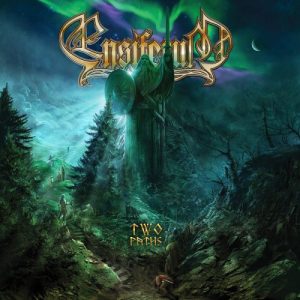 Ensiferum – Two Paths:
Ensiferum – Two Paths:
I’m a jerk for pointing it out, but the title of the new Ensiferum album is just ripe for fitting in all sorts of insults and snarky Twitter burns. But you know, its also kinda emblematic of what’s really going on in folk metal in 2017, a year in which we’ve seen a small handful of releases from the genre’s older standard bearers attempt to steer the genre back towards its gritty, dark, blackened roots. What they’re steering away from is sadly the kind of thing Ensiferum still find themselves stuck in, like some sticky tar they’re struggling to walk through for miles and miles. Its the goof-ication of a once solitary and spiritual subgenre of metal, the mid-2000s turn towards songs about ale, drunkenness, trolls, and whatever schlocky gimmicky stuff that’s been overplayed and overdone for about a solid decade plus now. I know I’ve gone on about this before so I’ll spare you all now, but there really has been solid statements of intent this year from folk metal artists such as Vintersorg, King of Asgard, and Wolfheart. We can even add Myrkur to that list, of new folk infused metal that reminds me of the way the genre used to be before it got all cartoonish and something to laugh about. Ensiferum’s first couple albums were part of that original legacy, and its been concerning to see them descend into the tropes that the genre’s more widely known bands have been barfing up.
I wasn’t wild about 2015’s One Man Army and only lukewarm on 2012’s Unsung Heroes, and I’m disappointed to see that trend continuing. Going back to my reviews of those albums now, I see that I chalked up my feelings on them with the belief that the band just needed to write better songs, which is an obvious take that could apply to any mediocre album. I wonder if Ensiferum’s problems are far deeper however, that maybe its a personnel problem in Petri Lindroos ultimately not being the most exciting vocalist the band could’ve picked as a replacement for Jari Maenpaa (for all Jari’s many difficulties, he had one of the best melo-death screamer voices in recent memory). Lindroos has the tendency to sound tame in comparison, his screaming vocals never really threatening or deviating from the monotone delivery he’s been using since his time in Norther. That might not bother some people, but I find it grating over the period of a couple songs, and its something that I’ve only just put my finger on this time around. I commend the band for trying to spice things up here with Lindroos and fellow band mate Netta Skog taking on clean vocals on “I Will Never Kneel” and “Don’t You Say”, but they fall flat musically. The latter sounds more like something off a Flogging Molly album and while that’s not a bad thing in itself, its just bewildering in the context of an Ensiferum release. The former features Skog on lead vocals and she’s got a fine voice, but there’s nothing emotionally gripping about what she’s singing, nothing that makes you feel that rush the way say Eluveitie did on “Call of the Mountains”.
Bassist and lyric writer (post Maenpaa) Sami Hinkka has contributed to the music writing more than ever on this album, being credited in writing five songs, a pair of them by himself (“God Is Dead”, “I Will Never Kneel”). I can only guess as to why longtime music writer/guitarist Markus Toivonen decided to mix things up this time around, but I wonder if there was a feeling in the band that things were getting stale and they had to inject something new. Skog also is credited on a few tracks, and unsurprisingly Lindroos is still not a major part of the songwriting team. Hey, some people just aren’t skilled in that particular facet of things and that’s okay, but that’s also why I wonder if the Lindroos/Ensiferum thing is running whatever course it seemed to have (at least on those fairly decent post Maenpaa albums). There are bands where the guitarist can write all the songs and the lyrics, and have a convincing frontman go out and sell them, we see it all the time in power metal and just regular rock n’ roll. Folk metal is a different breed however, its music that works best when its coming at you as a cohesive artistic expression. Lindroos was a fun vocalist in Norther, an admittedly generic melo-death band with a few fun songs and one excellent Europe cover, but I never really get the feeling he’s been a folk metal guy. When we go back and listen to those first two Maenpaa lyric penned albums we can hear the seeds of stuff he’d later explore in Wintersun, that guy really puts a ton of conviction into his art and recorded performance (regardless of however well he succeeds on a artistic or technical level). I hope I’m not sounding mean-spirited towards Lindroos, whom I hold no rancor towards —- I’m interested to hear someone else’s thoughts on this.
 Bell Witch – Mirror Reaper:
Bell Witch – Mirror Reaper:
This was one of those albums that you see the cover art for and just have to check out —- if the image on the left isn’t big enough for you, check out the full length spread here. It certainly gives a visual to the album title, allowing no one any room to wonder at what a mirror reaper would look like (Dark Souls concept art anyone?). While I had no doubt it would be atop everyone’s best album art of 2017 lists, I saw the band described as funeral doom and lamented for a minute before going ahead and giving the album a shot on Spotify, fully expecting to be bored or at the least, severely disinterested. Funeral doom is a tough genre to get into, I even had problems with the third disc of Swallow the Sun’s Songs From the North and I rather enjoyed the first two discs of that one. So a little background first: This is Bell Witch’s third full length (their debut came out in 2012), they’ve been a two piece band since their inception with only drums and bass (yes, bass) as the primary instruments. Dylan Desmond is the bassist and co-lead vocalist, and he somehow manages to get sounds out of a bass that would trick anyone’s brain into thinking they’re hearing a guitar. The band’s drummer on their first two albums was Adrian Guerra, who sadly passed away in May of 2016. He’s replaced by Jesse Shreibman here, and together he and Desmond produce a spectrum of sound that runs the gamut from soft, hushed atmospherics to withering, claustrophobia inducing waves of noise.
Whats surprising about Mirror Reaper is just how well it really works while being presented as a single song clocking in at 83 minutes, and yes you’re reading that right. I’ve enjoyed my time listening to the album, never feeling impatient with it like I figured I would have. Its a hypnotic, lulling, and subsequently jarring listening experience, something perfect for a chilly autumn day or a quiet night with the headphones on. The scope of this is huge, difficult to put into words except to say that it does sound like the soundtrack to grief, or at least a window into someone else trying to process grief. It wasn’t necessary to understand the backstory of Guerra’s passing to hear that element in the music —- this is a very sad, brutally melancholic listen in the most understated way possible. I marvel at what Desmond is able to convey through a bass, all while playing in seemingly slow motion, his notes ringing long and laboriously, only coming in just as its predecessor is about to fade entirely. Both he and Shreibman play in a manner that can only be described as economical, somehow crafting sounds out of two instruments that can fill your entire room with reverberating sound that is at times as bleak as you’d expect but also surprisingly beautiful and aching. This is not an easy listen just by virtue of its length, but its a seductive one, and a journey that pulls you in and keeps you listening. I’m more surprised at my own reaction to this, coming from a genre that I usually just ignore. This is nothing I’d want to see played live, but at home, on my own with the lights turned out and the headphones on, its a mesmerizing experience.



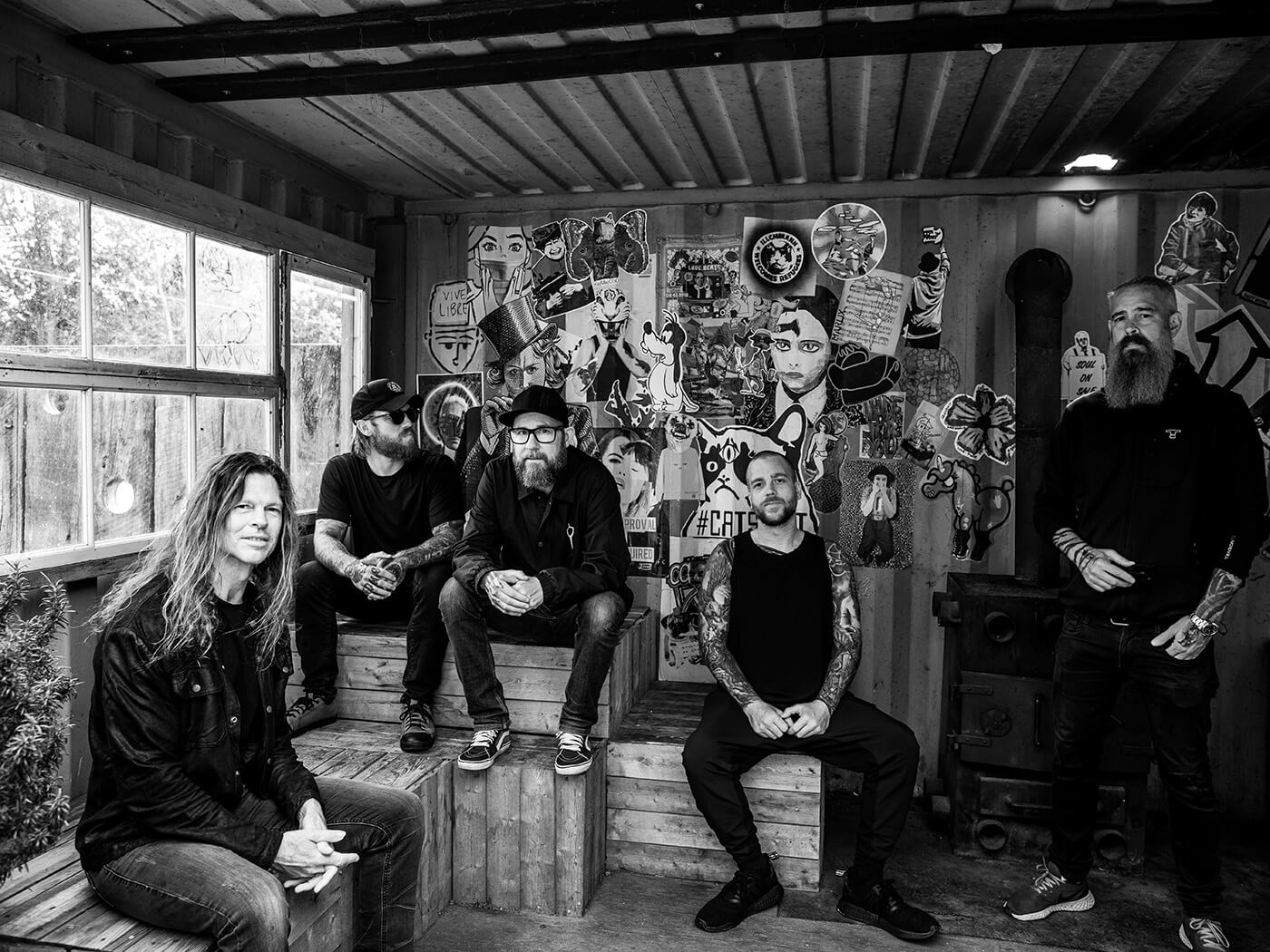
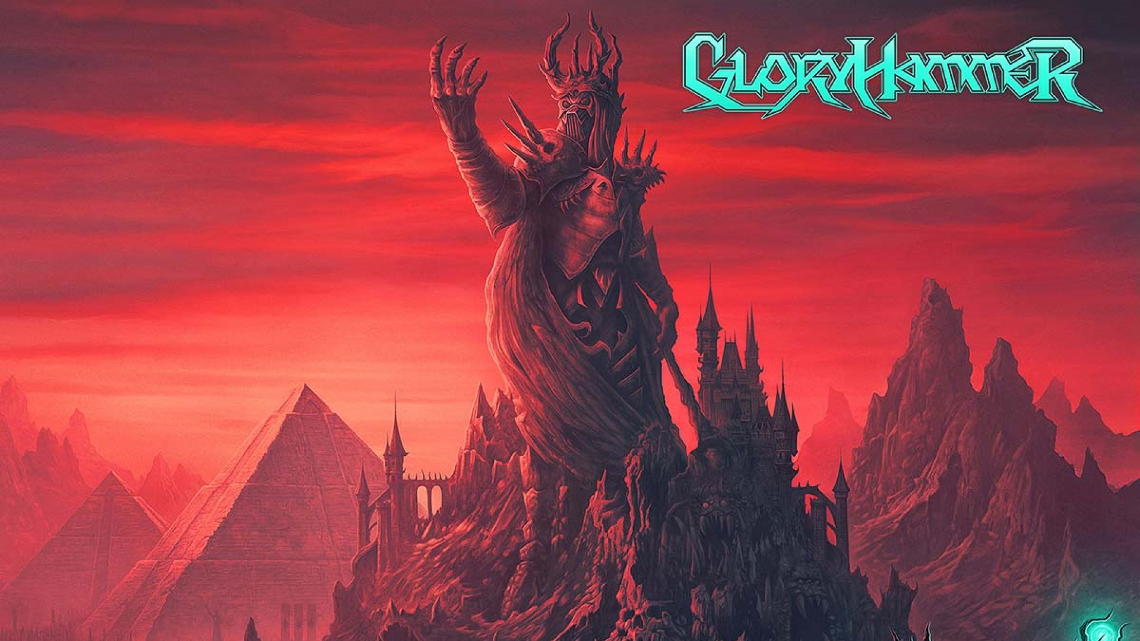
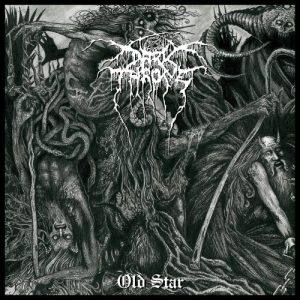


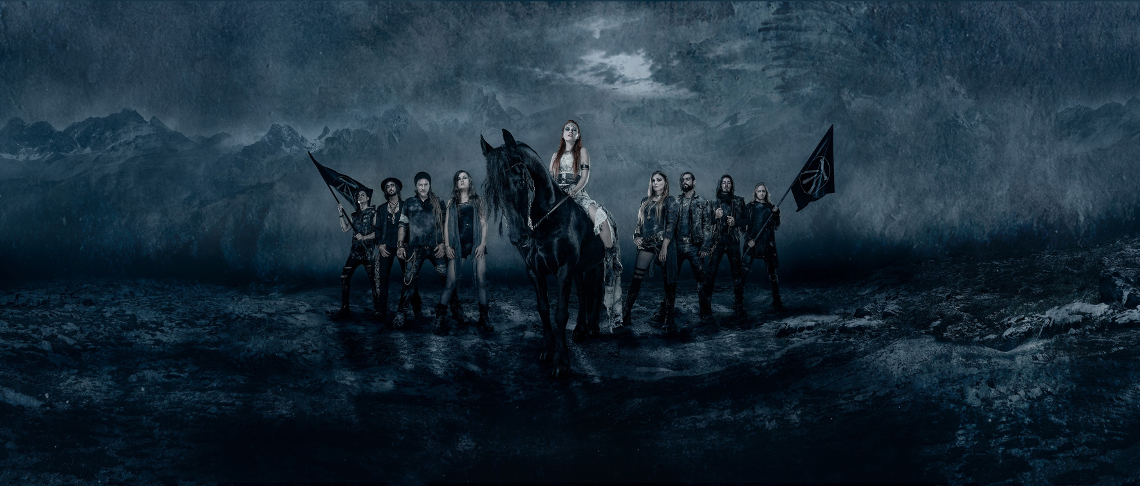

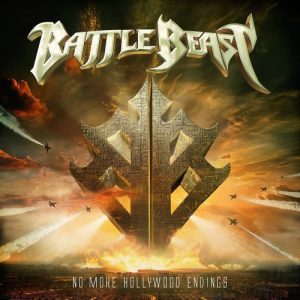


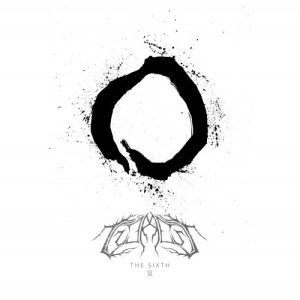




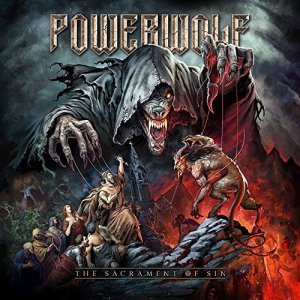 Powerwolf – The Sacrament of Sin:
Powerwolf – The Sacrament of Sin: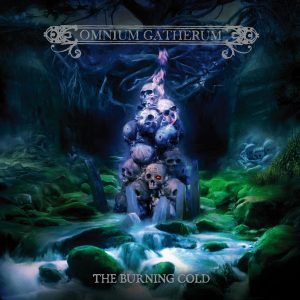 Omnium Gatherum – The Burning Cold:
Omnium Gatherum – The Burning Cold: Cauldron – New Gods:
Cauldron – New Gods: Beyond the Black – Heart of the Hurricane:
Beyond the Black – Heart of the Hurricane: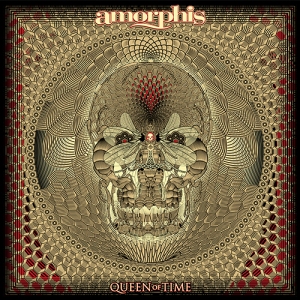 Amorphis – Queen of Time:
Amorphis – Queen of Time: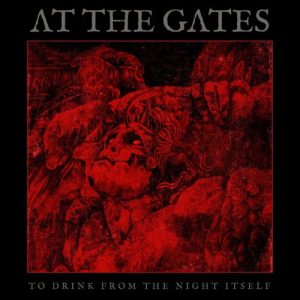 At The Gates – To Drink From The Night Itself:
At The Gates – To Drink From The Night Itself: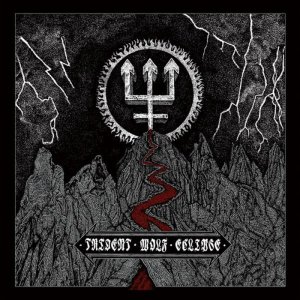 Watain – Trident Wolf Eclipse:
Watain – Trident Wolf Eclipse: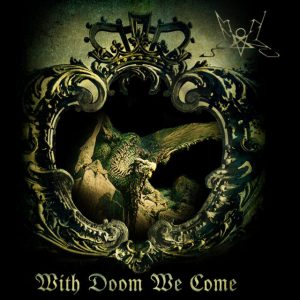 Summoning – With Doom We Come:
Summoning – With Doom We Come: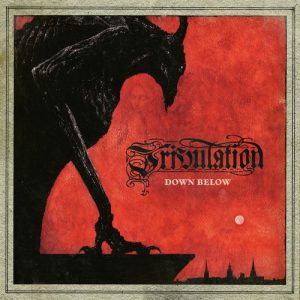 Tribulation – Down Below:
Tribulation – Down Below: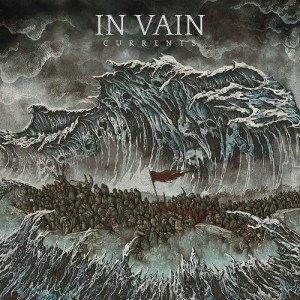 In Vain – Currents:
In Vain – Currents: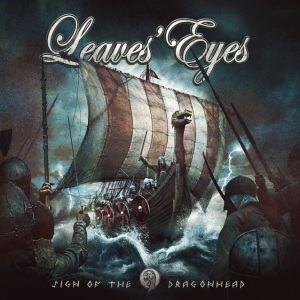 Leaves Eyes – Sign of the Dragonhead:
Leaves Eyes – Sign of the Dragonhead: Like other bands I absolutely love, I find the task of reviewing the new Orphaned Land album a daunting proposition, because there’s so much of my own emotional response I have to consider and somehow weigh before writing something that makes a lick of sense. Its been this way with new music from Maiden, Blind Guardian, Insomnium, etc… and will likely be this way for the upcoming Therion album as well. Its been five years since the band’s last album, the masterful, career-defining
Like other bands I absolutely love, I find the task of reviewing the new Orphaned Land album a daunting proposition, because there’s so much of my own emotional response I have to consider and somehow weigh before writing something that makes a lick of sense. Its been this way with new music from Maiden, Blind Guardian, Insomnium, etc… and will likely be this way for the upcoming Therion album as well. Its been five years since the band’s last album, the masterful, career-defining  I’m taking it as a given that everyone knows what Orphaned Land generally sounds like, its metal merged with Middle-Eastern instrumentation, melodies, and patterns. That’s a simplistic explanation but generally sums it up —- the thing is, a lot of bands can employ those sounds as window dressing and have (not naming any names here!). But Orphaned Land were the first to really do this in not only an authentic way, but in an interconnected way, meaning that it was enmeshed within their songwriting approach and integral to their sonic identity. It was called Oriental Metal by both the band and the metal community around the world, and one of the unique facets of this style of metal as others have gone down its path is that its entirely malleable to different subgenres. So we have the founders in Orphaned Land who for their first four albums merged traditional sounds with progressive death metal; but bands like Melechesh and Odious merged it with black metal; Aeternam are merging it with Gothenburg melodic death metal, and the likes of Myrath and Amaseffer merged with it clean vocal progressive metal with some power metal influences. I bring all this up because Orphaned Land’s sound has changed quite a bit over its past two albums, and its becoming clear to me with Unsung Prophets and Dead Messiahs that the choice of metal subgenre, or harsh or clean vocals doesn’t really matter —- the core of this style of metal is the traditional/ethnic Middle Eastern sound itself.
I’m taking it as a given that everyone knows what Orphaned Land generally sounds like, its metal merged with Middle-Eastern instrumentation, melodies, and patterns. That’s a simplistic explanation but generally sums it up —- the thing is, a lot of bands can employ those sounds as window dressing and have (not naming any names here!). But Orphaned Land were the first to really do this in not only an authentic way, but in an interconnected way, meaning that it was enmeshed within their songwriting approach and integral to their sonic identity. It was called Oriental Metal by both the band and the metal community around the world, and one of the unique facets of this style of metal as others have gone down its path is that its entirely malleable to different subgenres. So we have the founders in Orphaned Land who for their first four albums merged traditional sounds with progressive death metal; but bands like Melechesh and Odious merged it with black metal; Aeternam are merging it with Gothenburg melodic death metal, and the likes of Myrath and Amaseffer merged with it clean vocal progressive metal with some power metal influences. I bring all this up because Orphaned Land’s sound has changed quite a bit over its past two albums, and its becoming clear to me with Unsung Prophets and Dead Messiahs that the choice of metal subgenre, or harsh or clean vocals doesn’t really matter —- the core of this style of metal is the traditional/ethnic Middle Eastern sound itself.
 I had wondered if there would be an instrumental drop off after Yossi left the band, he was such a talent on a multi-instrumentalist scale, but thankfully the band has diversified their supporting musicians cast and still employs all the sounds you’d expect them too. I’m not good at picking individual tones out to identify each instrument correctly, but surely all of them are present on “All Knowing Eye”, a four minute journey into a lush Steven Wilson-esque soundscape, hypnotic melodies, and once again Kobi knocking it out of the park with a memorable vocal hook. He’s captivating again on the old traditional Hebrew vocal sung “Yedidi”, and its always interesting just how seamlessly the band’s amplified interpretations of these old religious/cultural songs fit in with their original material. The song that surprisingly might be the gem of the album is the nine minute plus epic “Chains Fall to Gravity”, a breathtakingly beautiful piece of music in construction and execution. Its not just the heart-wrenching violin melodies that grab you here, but the surging, hair-raising choral vocal bridge build up: “Go forth and be all you can be…”. The strange thing about this song is just how admittedly disjointed it really is if you break it down to its constituent parts. I’m not sure why it works so well, but its one of the most captivating things Orphaned Land has ever recorded, this album’s “The Beloved’s Cry” or “Brother”.
I had wondered if there would be an instrumental drop off after Yossi left the band, he was such a talent on a multi-instrumentalist scale, but thankfully the band has diversified their supporting musicians cast and still employs all the sounds you’d expect them too. I’m not good at picking individual tones out to identify each instrument correctly, but surely all of them are present on “All Knowing Eye”, a four minute journey into a lush Steven Wilson-esque soundscape, hypnotic melodies, and once again Kobi knocking it out of the park with a memorable vocal hook. He’s captivating again on the old traditional Hebrew vocal sung “Yedidi”, and its always interesting just how seamlessly the band’s amplified interpretations of these old religious/cultural songs fit in with their original material. The song that surprisingly might be the gem of the album is the nine minute plus epic “Chains Fall to Gravity”, a breathtakingly beautiful piece of music in construction and execution. Its not just the heart-wrenching violin melodies that grab you here, but the surging, hair-raising choral vocal bridge build up: “Go forth and be all you can be…”. The strange thing about this song is just how admittedly disjointed it really is if you break it down to its constituent parts. I’m not sure why it works so well, but its one of the most captivating things Orphaned Land has ever recorded, this album’s “The Beloved’s Cry” or “Brother”. Before we plunge directly headlong into discussing 2018 music, I’ve been having a blast listening to all the recommendations from other year end 2017 lists from writers/sites I’ve respected over the years. Some of the albums on these lists have just bounced right off me, but many have piqued my interest, so below are a couple things I’ve stumbled upon late that maybe you hadn’t heard yet either. Its my blog companion piece to the two MSRcasts we’ve recently recorded focusing on a slew of releases we missed. On the horizon are reviews for albums I’m already listening to in addition to these latecomers from last year, namely the new Watain, Summoning, and the upcoming Orphaned Land album. If the jam packed release schedule for this first quarter means anything, its hopefully going to be a good year!
Before we plunge directly headlong into discussing 2018 music, I’ve been having a blast listening to all the recommendations from other year end 2017 lists from writers/sites I’ve respected over the years. Some of the albums on these lists have just bounced right off me, but many have piqued my interest, so below are a couple things I’ve stumbled upon late that maybe you hadn’t heard yet either. Its my blog companion piece to the two MSRcasts we’ve recently recorded focusing on a slew of releases we missed. On the horizon are reviews for albums I’m already listening to in addition to these latecomers from last year, namely the new Watain, Summoning, and the upcoming Orphaned Land album. If the jam packed release schedule for this first quarter means anything, its hopefully going to be a good year! Cyhra – Letters to Myself:
Cyhra – Letters to Myself: Enslaved – E:
Enslaved – E: Amberian Dawn – Darkness of Eternity:
Amberian Dawn – Darkness of Eternity: Aetherian – The Untamed Wilderness:
Aetherian – The Untamed Wilderness: Blut Aus Nord – Deus Salutis Meæ:
Blut Aus Nord – Deus Salutis Meæ: Elvenking – Secrets of the Magic Grimoire:
Elvenking – Secrets of the Magic Grimoire: Ensiferum – Two Paths:
Ensiferum – Two Paths: Bell Witch – Mirror Reaper:
Bell Witch – Mirror Reaper: